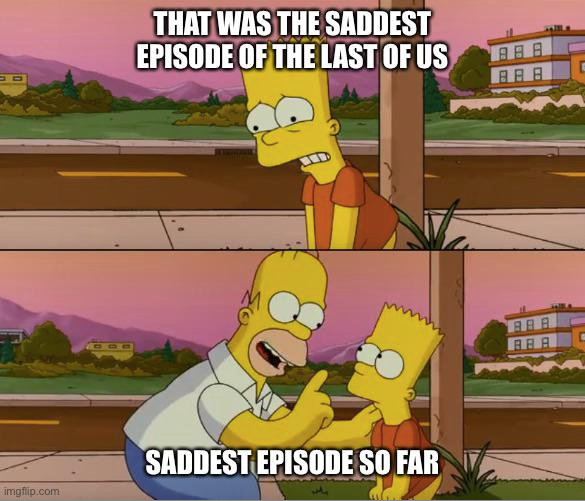Note: This article may contain some spoilers!
A Tale of Fungi, Fear, and… Hope?
At first glance, The Last of Us seems like your typical zombie apocalypse saga—fungal infections, societal collapse, and gritty survival. But peel back the layers, and you find a story bursting with heart, ethical puzzles, and moments of unexpected light. Why does this story grip us so tightly? Why do we root for characters who live in a world where hope should technically be extinct? To answer this, we need to understand how The Last of Us taps into deep psychological needs and offers more than just thrills—it offers a lens for how we deal with uncertainty, trauma, and the future.
Read More- Main Character Syndrome
The Appeal of Post-Apocalyptic Stories
Post-apocalyptic fiction lets us safely explore worst-case scenarios. It’s like a psychological sandbox where societal rules fall away, and raw human nature takes the stage. Research shows that humans are naturally drawn to stories that allow them to process fears in controlled ways (Mar, 2011). The Last of Us stands out because it balances despair with glimmers of hope, keeping audiences emotionally engaged without tipping into nihilism.
1. Resilience and Connection
One of the most powerful psychological draws of The Last of Us is its focus on resilience, a concept defined as the ability to bounce back from adversity (Southwick et al., 2014). Joel and Ellie’s evolving relationship—from strangers bound by necessity to surrogate father and daughter—is a textbook example of how human connection bolsters resilience.

Psychological science emphasizes that social bonds are essential to mental health and survival (Cacioppo & Hawkley, 2009). Joel’s gruff exterior slowly melts as his attachment to Ellie grows, demonstrating attachment theory in action—people’s need to form safe emotional bonds even in hostile environments (Bowlby, 1988). Viewers witness this transformation and feel it viscerally, mirroring the human craving for connection.
2. Moments of Hope
Despite its harsh setting, The Last of Us peppers its narrative with moments that whisper, “There’s still something worth fighting for.” These moments align with what psychologist Viktor Frankl called “tragic optimism”—finding meaning and hope even when life is tough (Frankl, 1985).
It’s not the end of the world. Not yet.
-Tommy
From Ellie’s playful banter to quiet scenes of natural beauty, the story reminds us that optimism doesn’t need to be grandiose. Psychologists note that such micro-moments of positivity can have outsized effects on mental health by activating the brain’s reward circuits and fostering motivation (Fredrickson, 2001).
3. Moral Ambiguity and Ethical Dilemmas
Joel’s climactic decision to save Ellie, even at the potential cost of a cure, sparks intense debate. This dilemma taps into moral psychology, particularly Kohlberg’s stages of moral development where individuals wrestle with principles, consequences, and empathy (Kohlberg, 1981).
Humans love stories that challenge their ethical compass—it’s a way to mentally rehearse complex social decisions (Hauser, 2006). The Last of Us doesn’t give easy answers, inviting players to sit with discomfort and explore their values, which enhances emotional engagement.
4. Empathy and Understanding
The depth of character development fosters empathy, a critical psychological mechanism for social cohesion (Decety & Jackson, 2004). Understanding Joel’s grief or Ellie’s trauma helps viewers navigate complex emotions vicariously, making the experience psychologically rich.
5. Optimism for the Future
At its core, The Last of Us is a story about hope. Ellie’s immunity symbolizes the potential for renewal. Psychologists view hope as a cognitive motivational state where individuals perceive pathways and agency to achieve goals (Snyder, 2002).
It’s not enough to survive. You have to survive with some kind of dignity.
-Joel
Hope drives behavior and resilience, especially in difficult times (Lopez, 2013). The series taps into this by reminding audiences that even in a broken world, the future is not predetermined. This message resonates powerfully in an era of global uncertainty.
The Psychological Magic Behind The Last of Us
What makes The Last of Us irresistible is how it intertwines raw human emotion, moral complexity, and flickers of hope into a narrative that mirrors our own struggles. It doesn’t just entertain; it teaches us about resilience, connection, and optimism in adversity. In a world that often feels overwhelming, Joel and Ellie’s journey offers a beacon—proof that even in the darkest places, the human spirit can endure and find meaning.
References
Bowlby, J. (1988). A secure base: Parent-child attachment and healthy human development. Basic Books.
Cacioppo, J. T., & Hawkley, L. C. (2009). Perceived social isolation and cognition. Trends in Cognitive Sciences, 13(10), 447–454. https://doi.org/10.1016/j.tics.2009.06.005
Decety, J., & Jackson, P. L. (2004). The functional architecture of human empathy. Behavioral and Cognitive Neuroscience Reviews, 3(2), 71-100. https://doi.org/10.1177/1534582304267187
Frankl, V. E. (1985). Man’s search for meaning. Washington Square Press.
Fredrickson, B. L. (2001). The role of positive emotions in positive psychology. American Psychologist, 56(3), 218–226. https://doi.org/10.1037/0003-066X.56.3.218
Hauser, M. D. (2006). Moral minds: How nature designed our universal sense of right and wrong. Harper Collins.
Kohlberg, L. (1981). Essays on moral development: Vol. 1. The philosophy of moral development. Harper & Row.
Lopez, S. J. (2013). The Oxford handbook of hope. Oxford University Press.
Mar, R. A. (2011). The neural bases of social cognition and story comprehension. Annual Review of Psychology, 62, 103-134. https://doi.org/10.1146/annurev-psych-120709-145406
Snyder, C. R. (2002). Hope theory: Rainbows in the mind. Psychological Inquiry, 13(4), 249-275. https://doi.org/10.1207/S15327965PLI1304_01
Southwick, S. M., Bonanno, G. A., Masten, A. S., Panter-Brick, C., & Yehuda, R. (2014). Resilience definitions, theory, and challenges: Interdisciplinary perspectives. European Journal of Psychotraumatology, 5(1), 25338. https://doi.org/10.3402/ejpt.v5.25338
Subscribe to PsychUniverse
Get the latest updates and insights.
Join 3,045 other subscribers!
Niwlikar, B. A. (2025, May 30). The Last of Us and 5 Uniquely Insightful Aspects That Draws Us To It. PsychUniverse. https://psychuniverse.com/the-last-of-us/



